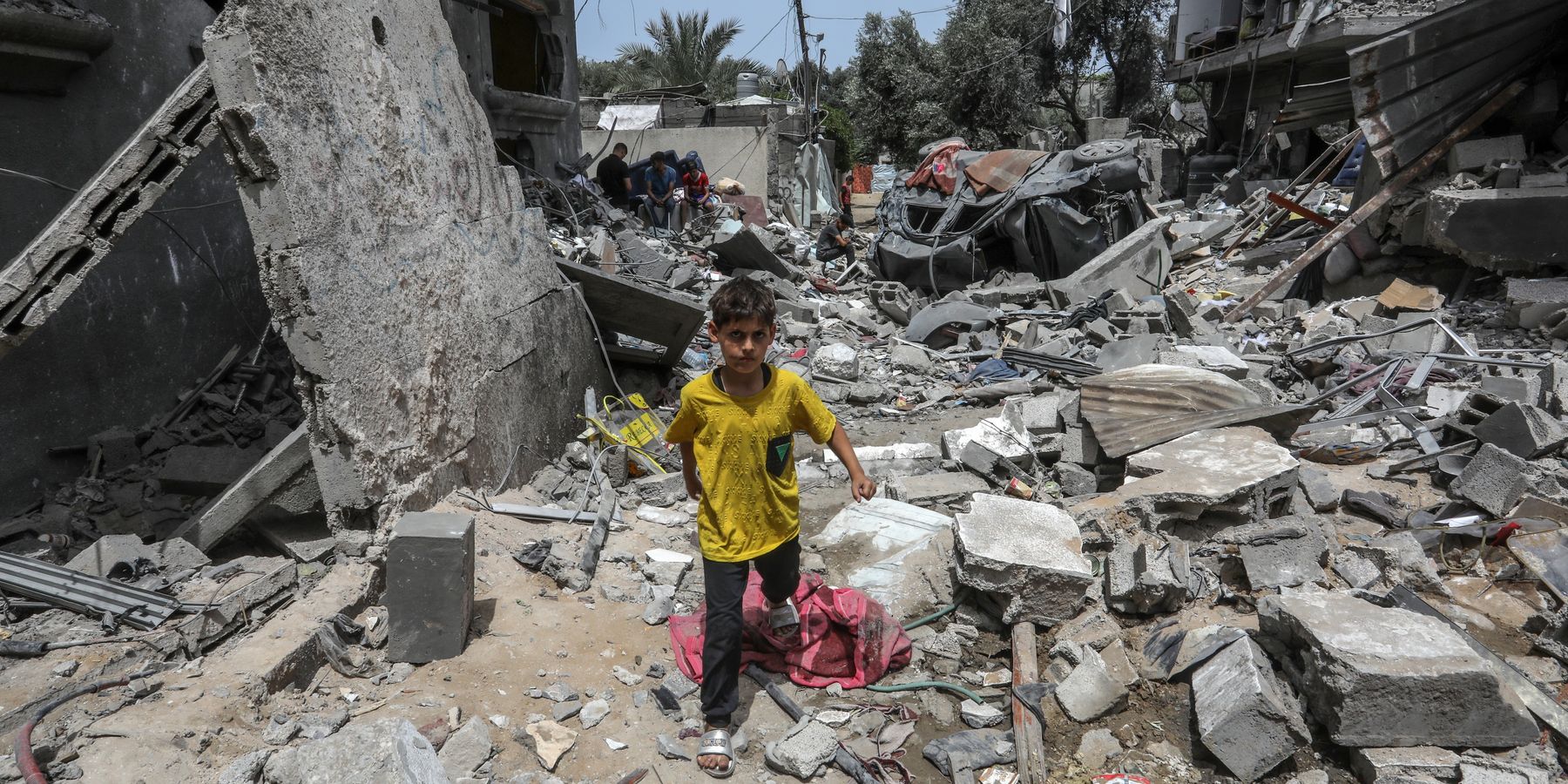Today, Amnesty International became the first major human rights organization to accuse Israel of carrying out a genocide in Gaza, releasing a detailed report to substantiate this claim.
“Our research reveals that, for months, Israel has persisted in committing genocidal acts, fully aware of the irreparable harm it was inflicting on Palestinians in Gaza,” says Agnès Callamard, Secretary General of Amnesty International. “It continued to do so in defiance of countless warnings about the catastrophic humanitarian situation and of legally binding decisions from the International Court of Justice (ICJ) ordering Israel to take immediate measures to enable the provision of humanitarian assistance to civilians in Gaza.”
The Israeli foreign ministry has denied the allegations, calling them “entirely false.” Amnesty Israel also disagreed with the findings, saying that the “scale of killing and destruction carried out by Israel in Gaza has reached horrific proportions,” but that Israel’s war in Gaza does not meet “the definition of genocide as strictly laid out in the Convention on the Prevention and Punishment of the Crime of Genocide.”
For its part, the United States also rejects these findings. “We disagree with the conclusions of such a report. We have said previously and continue to find the allegations of genocide to be unfounded," said State Department deputy Spokesperson Vedant Patel, adding that Washington disagrees with Israel's charge that Amnesty International is "deplorable."
“Israel’s actions following Hamas’s deadly attacks on 7 October 2023 have brought Gaza’s population to the brink of collapse,” said Amnesty International in its press release. “Its brutal military offensive had killed more than 42,000 Palestinians, including over 13,300 children, and injured over 97,000 more, by 7 October 2024, many of them in direct or deliberately indiscriminate attacks, often wiping out entire multigenerational families. It has caused unprecedented destruction, which experts say occurred at a level and speed not seen in any other conflict in the 21st century.”
The report highlights the level of destruction in Gaza, particularly that of civilian infrastructure, stating “there is consensus among UN agencies and experts and humanitarian organizations that the level and speed of damage and destruction caused to Palestinian homes and life-sustaining infrastructure across all sectors of economic activity has been uniquely catastrophic ….” Amnesty also pointed out that the U.N. estimated reconstruction would not be complete until 2040, “even under an optimistic scenario.”
Amnesty also points out the high levels of dehumanization seen in the Gaza Strip. The report states that “senior Israeli military and government officials intensified their calls for the destruction of Palestinians in Gaza, using racist and dehumanizing language that equated Palestinian civilians with the enemy to be destroyed.”
In October, the Israeli human rights group, B’tselem, used the label “ethnic cleansing” to describe Israel's actions in northern Gaza. “For a year now, since the war began, the international community has shown utter impotence to stop the indiscriminate attack on civilians in the Gaza Strip,” B’tselem stated. “Now, when it is clearer than ever that Israel intends to forcibly displace northern Gaza’s residents by committing some of the gravest crimes under the laws of war, the world’s nations must take action.”
Amnesty says that “States that continue to transfer arms to Israel at this time must know they are violating their obligation to prevent genocide and are at risk of becoming complicit in genocide,” adding that “all states with influence over Israel, particularly key arms suppliers like the USA and Germany, but also other EU member states, the UK and others, must act now to bring Israel’s atrocities against Palestinians in Gaza to an immediate end.”
- Wall Street eyes big profits from Israel-Hamas war ›
- Gaza breakdown: 20 times Israel used US arms in likely war crimes ›
















